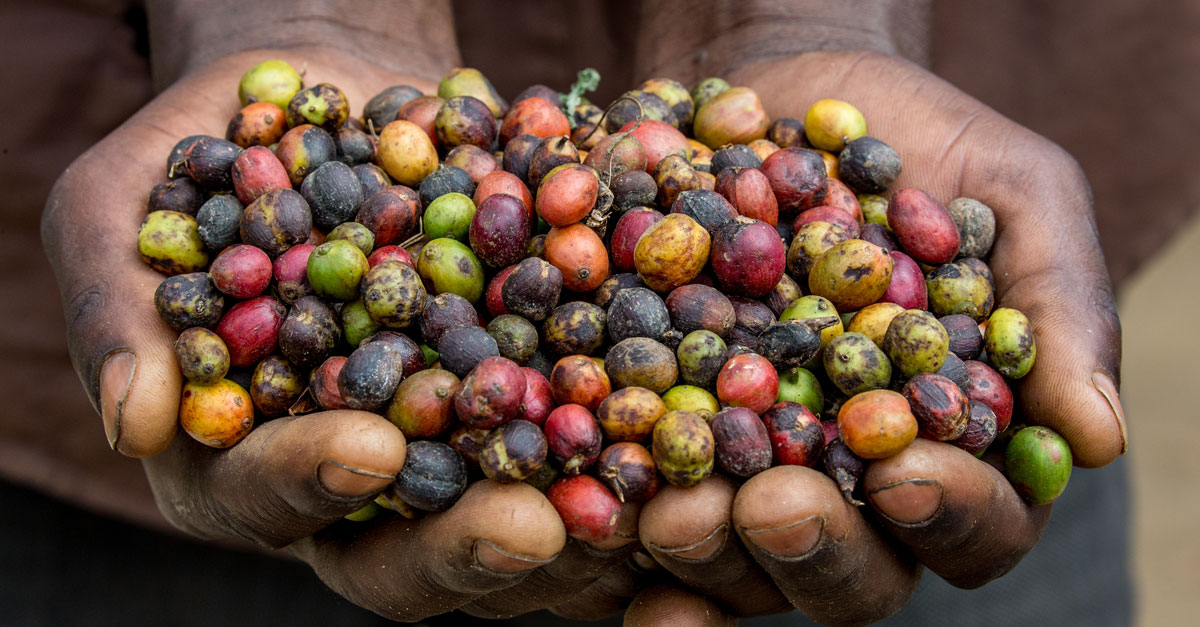EXPLORING THE COFFEE REGION IN AFRICA: FLAVORS AND STORIES FROM THE DARK CONTINENT
1. Introduction
Africa is not only renowned for its pristine natural landscapes and rich cultural heritage but also stands out as one of the most important coffee-producing regions in the world. From the coffee fields nestled in the mountains of Ethiopia to the coffee farms in Kenya and Tanzania, the African coffee region is where excellent coffee beans are grown and nurtured, creating unique and marvelous flavors.

2. Origins
The Arabica coffee plant, the finest coffee species, is believed to have originated in Ethiopia, Africa, around 1200 AD. According to legend, a goat herder named Kaldi discovered the coffee plant when he noticed his animals becoming unusually lively after consuming its berries. Since then, coffee has become an integral part of the culture and economy in Ethiopia and subsequently across Africa.
3. Major Coffee-Producing Countries
Ethiopia: The birthplace of coffee, Ethiopia, is considered the homeland of Arabica coffee. Coffee-growing regions in Ethiopia include Harar, Sidamo, and Yirgacheffe. Ethiopian coffee is known for its diverse flavors, ranging from delicately aromatic to bold and robust. Coffee in Ethiopia is not just a beverage; it's an essential part of the national culture, often used in religious ceremonies and special occasions.
Kenya: Kenya is also one of the renowned countries for producing high-quality coffee. Kenyan coffee often exhibits a pronounced acidity, fresh aroma, and sweet aftertaste. Famous coffee-producing regions in Kenya include Kiambu, Nyeri, and Murang’a. Coffee in Kenya is not only a significant export product but also an indispensable part of daily life, often enjoyed during family gatherings and social events.
Tanzania: With diverse terrain ranging from high mountains to vast plains, Tanzania is one of the leading coffee-producing countries in Africa. Tanzanian coffee often boasts a complex aroma and smooth finish, with famous producing regions such as Arusha, Kilimanjaro, and Mbeya. Coffee in Tanzania is not just a commercial commodity but also a symbol of the country's prosperity and economic strength.
4. Cultivation Methods
Farmers in Africa often employ traditional cultivation methods, combined with modern techniques, to produce high-quality coffee beans. While many areas still harvest coffee manually, some large farms have transitioned to mechanized methods to increase productivity and product quality. The combination of traditional knowledge and modern technology has helped African farmers produce high-quality coffee beans while protecting and developing natural resources.
5. Social and Economic Significance
Coffee is not only a vital export commodity but also an integral part of the culture and daily life of people in Africa. It provides income for millions of farmers and exporters, creating thousands of direct and indirect jobs throughout the entire country. Moreover, coffee also creates an important community meeting point, where people can come together, chat, and share their passion for this beverage. Coffee also holds profound cultural significance, often used in ceremonies, festivals, and traditional gatherings.

6. Conclusion
The coffee region in Africa is not only a place where high-quality coffee beans are produced but also a repository of unique stories and traditions. From Ethiopia to Kenya and Tanzania, coffee has become an indispensable part of life and culture in Africa, serving as an endless source of inspiration for coffee lovers worldwide.
![]()
S54 - Coffee
